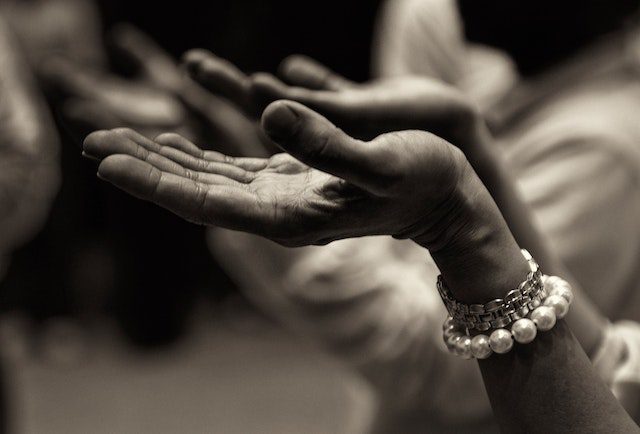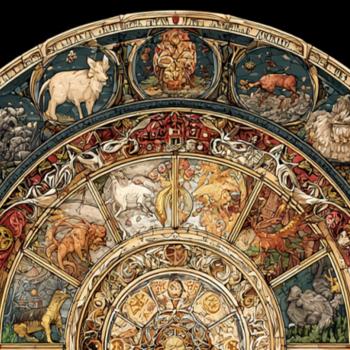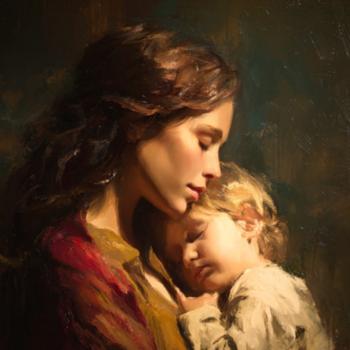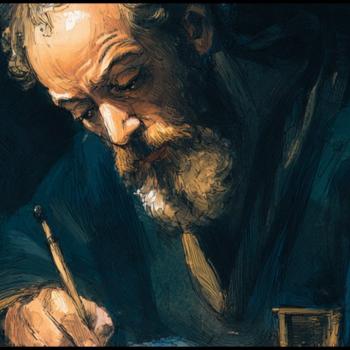
My wife and I just finished watching Ken Burn’s excellent documentary on The U.S. and the Holocaust, and, if you’ve seen it, you already know how critical it is for journalists to take the time to accurately represent people of different faiths in their reporting.
When negative religious and ethnic stereotypes are reinforced, it gives people permission to marginalize those people, and to justify policies that lead to their oppression.
That’s why this new study, published last week by The Faith and Media Initiative – a nonprofit that connects and provides resources to a worldwide network of content creators, media members, faith leaders and community members to ensure accurate and balanced representation of all faiths in entertainment and journalism – is so important.
This study gives us an opportunity to talk about how poorly religious people are represented in our media outlets, and to voice our desire to have more accurate and honest portrayals of various faith groups in our news coverage.
The survey includes responses from over 9,000 people in 18 countries from a variety of faith traditions.
Out of those, 82% said they were spiritual or religious, 74% ascribed belief in a specific religion, and 72% believed in God or other deities.
What the study was most concerned about was the way faith and religion are represented in the media – both in journalism and in our entertainment.
SEE THE STUDY YOURSELF HERE>
What they found was that journalists feel afraid to get religions wrong, and so they tend to avoid the subject as a rule. What’s more, journalists say their publications downplay religion and faith as a driver for readership. So, if their editors aren’t concerned about including accurate representations of faith, why should they be?
In fact, religion and faith tend not to make headlines unless there is some underlying controversy to report: A Christian scandal, an Islamic attack, or reports of violence against Hindus or Buddhists are typically what drive mentions of religious groups.
But, what they found when they asked everyday people about the kinds of stories they want to read about, the results were entirely different.
Those surveyed said there was a noticeable gap in reporting on issues of faith, and that better coverage and representation of faith in media was needed.
For example:
- 53% of respondents said the media actively ignores religion as an aspect of society and culture.
- 59% believe it’s important that the news media cover a diverse set of faith and religious perspectives.
- 63% of people globally say that high-quality content on faith and religion is needed in their respective countries.
What people most wanted from their journalists was for religious stereotypes to be addressed and for more accurate representation of various faiths in the media.
Over 60% said that the media perpetuates stereotypes rather than protecting people of faith from these false assumptions.
Almost 80% said that the media should prioritize educating their readers about religious stereotypes; in the same way they work to correct race and gender stereotypes.
So, what’s the main takeaway from this study? What can we learn from it?
Well, first of all, it’s fascinating to note the gap between what journalists and editors think people care about and what they actually do care about.
Secondly, the perpetuation of religious stereotypes in the media is what often leads to violence and discrimination.
News articles, television dramas, and films that misrepresent people of faith tend to reinforce those negative perceptions that allow us to remain ignorant of what people who are not like us really believe, or what people of other faiths are really like.
When my wife, Wendy, and I worked with Peace Catalyst International, our goal was to bring Muslims and Christians together around a table to share a meal, engage in conversation, and discover how much we all have in common.
What we learned was this: As long as we’re focused on our differences, we’ll never take the time to learn how much we’re alike.
For followers of Jesus, this should give us an opportunity to step back and re-examine our approach to people of other faiths. Do we have a sincere desire to seek peace? Are we interested in becoming peacemakers? If so, that path to peace begins by taking the time to look for common ground.
As long as we’re focused on calling out all the ways we are unlike people of other faiths, we’ll remain on the path that leads to conflict, arguments, and yes, eventually, violence and oppression.
So, which path should the followers of the Prince of Peace seek to follow? Obviously, the path that leads to understanding, dialog, acceptance and peace is the path we are called to walk.
We’ve all been given a “ministry of reconciliation” according to the Apostle Paul. But, I wonder how many of us have ever evaluated how our ministry is developing in that direction. Are we actively seeking peace in our community? Are we intentional about being peacemakers in our neighborhood? Or in our workplace?
If each of us has been tasked with seeking reconciliation, then we have to begin by looking for common ground, seeking to listen in order to understand rather than to prove how right we are, or how wrong “they” are.
So, I’m grateful for this extensive study, and I’m encouraged by the responses of people who prefer more accuracy in the media regarding the fair representation of various faiths.
It suggests that we already know we’re being pulled apart by social media, and we’re tired of the “Us vs Them” rhetoric that permeates almost everything we consume.
By humanizing one another, we make our world a more loving, accepting and welcome place to be.
We don’t need any more stories that divide us, or set us against one another.
What we need is an opportunity to see ourselves in the faces of those who don’t look like us, or pray like us, or talk like us.
What we need is the opportunity to learn, and that starts by listening to those who may have a new perspective.
How else can we grow? How else can we mature?
We need one another.
There is no “Them.” There is only “Us.”
**
Keith Giles is the author of the hot new bestseller, SOLA MYSTERIUM: Celebrating the Beautiful Uncertainty of Everything, available now on Amazon. Keith is also the host of Second Cup with Keith, a new solo podcast available now on the Ethos Radio App, for Apple and Android and on Spotify. Keith is also co-host of the long-running HERETIC HAPPY HOUR PODCAST.













